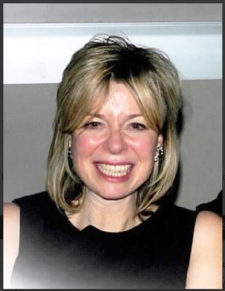Karen McCleave, Former Assistant Crown Attorney, Advisor, Community Advocate and Educator, Brings Experienced Perspective to Young Lawyers

Karen McCleave, Former Assistant Crown Attorney, Advisor, Community Advocate and Educator, Brings Experienced Perspective to Young Lawyers
Finding a path in law that you find interesting and impactful can forge a satisfying and lucrative career upon passing the bar exam. The practice of law can take many forms, including criminal justice litigation. In becoming a prosecution lawyer, known as District Attorneys in the United States and Crown Attorneys in Canada, you are given important powers and responsibilities. You would represent the Attorney General in a quasi-judicial position. Presenting criminal cases to the court in the employ of government is meaningful and important work.
Key qualities of a prosecutor include sound judgment, integrity, strong communication skills, enthusiasm for public service, and an ability to handle high-pressure situations while carrying a heavy caseload.
To get some perspective in determining what type of practice you’d like to be involved in, we spoke to Canadian lawyer Karen McCleave, who served as an Assistant Crown Attorney in the Ontario and Superior Courts of Justice for more than 30 years.
During her tenure as a prosecutor, Karen handled a varied caseload including summary conviction offences, domestic, sexual and child abuse, complex frauds and murders. She conducted dozens of jury trials, that included lengthy murder cases.
Karen McCleave’s years as a Crown prosecutor has translated into an opportunity for speaking events and law education conferences, where she has been called upon to share her expertise on several important subjects.
Here, we talk about how things have changed since Karen began practising law, and her advice for young lawyers who are looking to start their legal career.
Thanks for sitting down with us. First off, how has the role of a Crown prosecutor in criminal proceedings changed since you started your career?

Karen McCleave
Karen McCleave:
Two observations: The first pertains to the demographics. When I first began, I could be in court for days and not come across another woman in a professional capacity. The judges, defence counsel and police officers were almost all male. By the time I left the office in 2017, there were days when I dealt with all, or almost all, women in these professional roles. As the song goes, the times, they are a-changin’!
The second is that Canadian prosecutors now have more tools at their disposal because of legislative and common-law evolutionary changes. For example, our society is now more informed about the dynamics of domestic and sexual abuse. We understand that victims may not feel, by the time of trial, that they can testify. Legal developments now allow the prosecutor to apply to the court for a ruling that the original victim statement can be admitted for its truth to prove the case if certain safeguards are met.
In your opinion, what qualities and personality traits make for an effective prosecutor?
Karen McCleave:
There are so many! Here are some core, requisite ones:
- An impeccable moral and ethical compass for guidance to be the principled prosecutor you are expected to be
- Demonstration of sound judgment and fairness
- Intellectual ability and curiosity to drive pertinent questioning of witnesses, including the defendant
- An appreciable work ethic to handle the heavy caseloads
- Willingness to be a life-long learner to keep abreast of legal developments
The road to a law career is not as linear as it was 20 or 30 years ago, which means some law graduates could have difficulty finding employment. What is your advice to young professionals who are looking to land their first job?
Karen McCleave:
I hear you! I obtained my law degree during a recession when stories abounded about under- and unemployed lawyers. You cannot start too early to connect with lawyers who practice in the specialty you want to pursue. Focus on summer experiences with law firms or prosecution offices because they are a great “foot in the door” for substantive learning and networking. In law school, sign up for Mock Trial programs and volunteer at legal community clinics. Shadow a lawyer in court.
If you are interested in working with victims, connect with shelters and other support groups. The contacts you make in these earlier years are like compound interest! They will continue to assist you in achieving your dream job.
You have been long active in civic and community affairs. What are you looking forward to achieving today in your new role as a community supporter and advocate?
Karen McCleave:
Once you discover the meaning that public service gives to your life and the lives of others, it is a life-long quest. This life chapter has few constraints. I enjoyed being a Policy Advisor for a Senator in the Canadian Senate. I am passionate about becoming more involved in the arts through volunteering in governance and other capacities. I enjoy teaching.
An important cause is advocating for more understanding of and support for children and adolescent mental health.
What is the best piece of career advice you ever received?
Karen McCleave:
The path of principle can sometimes be a lonely, but necessary, walk in difficult times!


